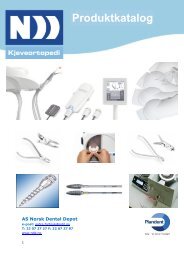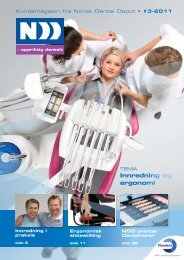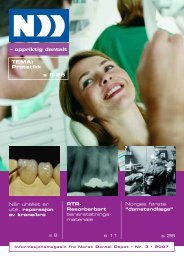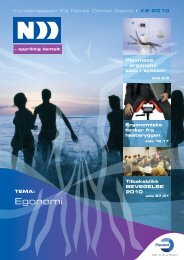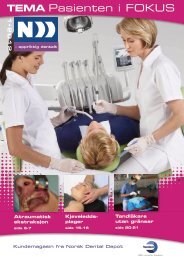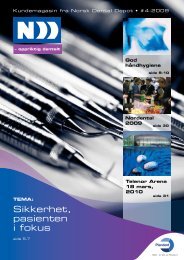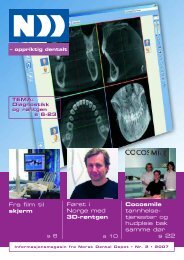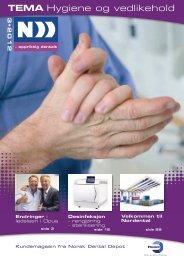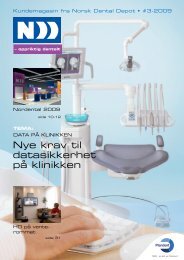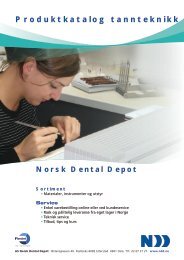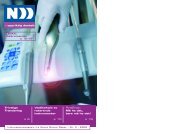Biodentine
Biodentine
Biodentine
Create successful ePaper yourself
Turn your PDF publications into a flip-book with our unique Google optimized e-Paper software.
4<br />
Introduction<br />
<strong>Biodentine</strong> was developed by Septodont’s Research Group as a new class of<br />
dental material which could conciliate high mechanical properties with excellent<br />
biocompatibility, as well as a bioactive behavior. Several years of active and<br />
collaborative research between Septodont and several universities led to a new<br />
calcium-silicate based formulation, which is suitable as a dentine replacement<br />
material whenever original dentine is damaged.<br />
In addition to the chemical composition based on the Ca 3 SiO 5 – water chemistry<br />
which brings the high biocompatibility of already known endodontic repair<br />
cements (MTA based), Septodont increased the physico-chemical properties<br />
(short setting time, high mechanical strength…) which make <strong>Biodentine</strong><br />
clinically easy to handle and compatible, not only with classical endodontic<br />
procedures, but also for restorative clinical cases of dentine replacement. Sealing<br />
ability of this biomaterial was also assessed to be equivalent to glass-ionomers,<br />
without requiring any specific conditioning of the dentine surface. Leakage<br />
resistance and mechanical strength will improve over the first weeks after<br />
placement.<br />
<strong>Biodentine</strong> turns out to be one of the most biocompatible of all the biomaterials<br />
in dentistry as demonstrated according to all the ISO standard tests, as well as in<br />
the different preclinical and clinical research collaborations. Moreover, reactionary<br />
dentine formation was demonstrated in rats, exhibiting high quality and quantity<br />
of protective dentine stimulation in indirect pulp capping. In the case of direct<br />
pulp capping and pulpotomy in pigs, the compatibility with the pulp enables a<br />
direct contact with fibroblasts, with limited inflammatory response compared to<br />
controls. Formation of a regular and dense dentine bridge is histologically<br />
demonstrated within one month.<br />
Besides the usual endodontic indications of this class of calcium-silicate<br />
cements (repair of perforations or resorptions, apexification, root-end filling),<br />
<strong>Biodentine</strong> has been evaluated for its restorative properties versus composite<br />
(Z100, 3M ESPE) in a three year follow-up, randomized, multicentre clinical<br />
study in 400 patients. It was suitable as a permanent dentine substitute and<br />
temporary enamel substitute. Restoration of deep or large crown carious lesions<br />
provides a very tight seal, without post-operative sensitivity and insures the<br />
longevity of restorations in vital teeth. <strong>Biodentine</strong> has also achieved 100%<br />
success in direct pulp capping in adults presenting healthy pulp.



